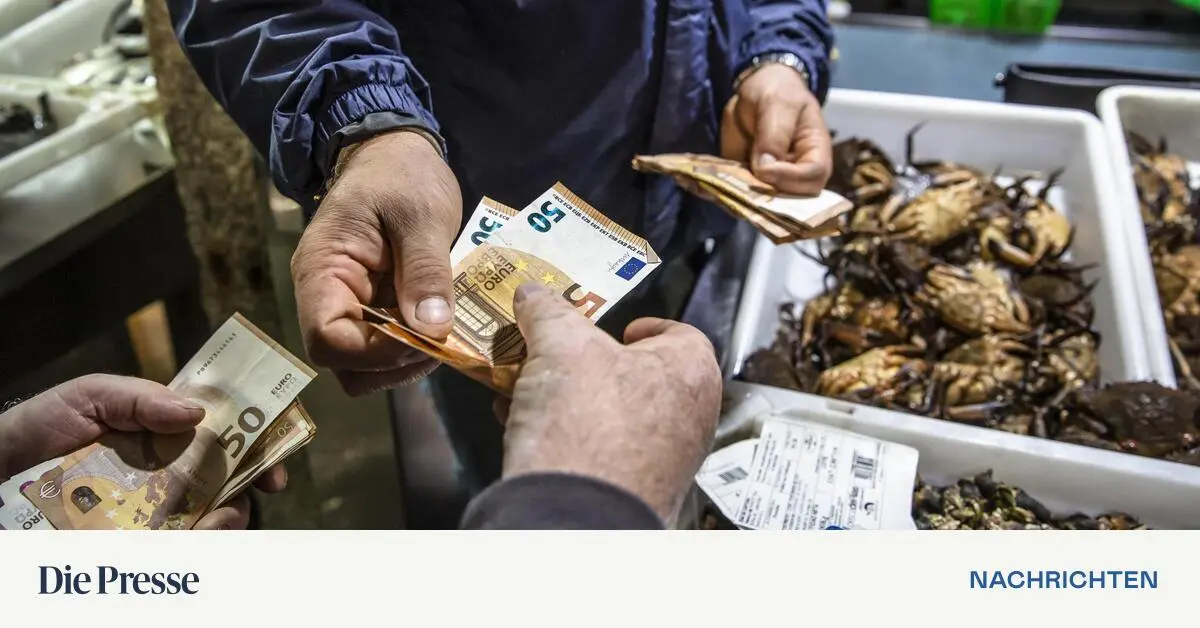The European Union wants to take action against money laundering by banning large amounts of money in cash. It should no longer be possible to purchase luxury goods anonymously. The new regulation also targets professional football clubs.
Brussels (APA/AFP) – Cash payments worth more than 10,000 euros will be banned in the European Union in the future. On Thursday morning, negotiators from the European Parliament and member states agreed on EU-wide regulations against money laundering aimed at closing loopholes in national laws. Luxury goods merchants must also verify the identity of their customers and report suspicious transactions to the authorities.
The stricter rules will apply, among other things, to the trade in jewellery, luxury cars, private aircraft and ships. Under the agreement, financially powerful football clubs such as Bayern Munich and Borussia Dortmund will also be subject to the new law from 2029. Professional football, with its billions in investments from third countries, is seen as a potential gateway for money laundering in Europe.
Wealthy people should be watched closely
Authorities must also closely monitor cryptocurrencies and banking transactions of wealthy people with assets of at least €50 million. Owners of companies with at least a quarter share must be registered across the EU. This aims, among other things, to prevent Russian oligarchs from circumventing EU sanctions as a result of the attack on Ukraine.
European Parliament negotiator Eero Heinaluma stressed that the imposition of stricter anti-money laundering rules regarding cryptocurrencies, banks, oligarchs and football clubs is “long overdue.” A common, EU-wide framework bridges national gaps. “So far, member states have lost billions of euros,” the Finnish Social Democrat explained.
Freedom Party: “Another step towards abolishing cash”
For EU liberal MP Romain Haider, this is “another step towards imminent demonetisation,” as the Parliamentary Freedom Club explained in a press release. “While monetary borders are being tightened even tighter, the ECB is already planning to introduce a digital euro, which will formally complement cash but could also actually replace it,” Haider said.
The law still needs formal approval from the European Parliament and member states. National authorities will be responsible for monitoring the new rules, in coordination with a new European Anti-Money Laundering Authority (Amla). Amla's headquarters will be determined this year, and Vienna has also applied for it. (Abba)

“Food practitioner. Bacon guru. Infuriatingly humble zombie enthusiast. Total student.”








More Stories
Kyiv: Russian Kursk offensive halted
US Presidential Election: Former US Government Officials Warn Against Donald Trump's Election
Netherlands wants to leave asylum system